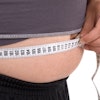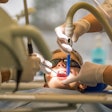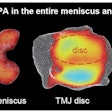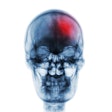
NEW YORK (Reuters Health) Jan. 3 A report in the Journal of the American Dental Association for January clarifies the risk of jaw osteonecrosis associated with bisphosphonates. Intravenous bisphosphonates strongly increase the risk of adverse jaw outcomes, but oral bisphosphonates tend to decrease the risk, the research shows.
"This is good news for the roughly 3 million Americans who take Fosamax, Actonel, Boniva or similar osteoporosis meds orally," senior author Dr. Athanasios Zavras, from Harvard School of Dental Medicine in Boston, said in a statement.
In 2003, reports first surfaced linking intravenous bisphosphonate use with osteonecrosis of the jaw. Oral versions of these agents were initially thought to be safe until a report came out in May 2005 showing that 7 of 63 bisphosphonate users who developed the condition had been using oral forms.
To investigate further, the researchers analyzed medical claims from 714,217 patients with osteoporosis or cancer to determine the effect that bisphosphonate use had on the risk of three outcomes: inflammatory conditions of the jaw (including osteonecrosis), major jaw surgery for necrotic indications, and jaw surgery for a malignant process.
The results showed that intravenous bisphosphonate use was associated with odds ratios of 4.01 and 4.47 for inflammatory necrosis of the jaw among patients with osteoporosis and cancer, respectively, and with corresponding odds ratios of 7.80 and 6.80 for surgery for a necrotic process. No significant effect was noted regarding the risk of surgery for a cancer process.
By contrast, oral bisphosphonate use reduced the risk of inflammatory necrosis of the jaw in patients with osteoporosis, with an odds ratio of 0.65. No significant effects of oral bisphosphonates were seen regarding surgery for a necrotic process in this patient group or for any of the adverse jaw outcomes in cancer patients.
"Our findings on intravenous bisphosphonates are consistent with the literature, which makes me confident that our findings on oral bisphosphonates are correct," Dr. Zavras stated. "We're currently recruiting patients for a clinical study to confirm them."
Copyright © 2008 Reuters Limited. All rights reserved. Republication or redistribution of Reuters content, including by framing or similar means, is expressly prohibited without the prior written consent of Reuters. Reuters shall not be liable for any errors or delays in the content, or for any actions taken in reliance thereon. Reuters and the Reuters sphere logo are registered trademarks and trademarks of the Reuters group of companies around the world.



















